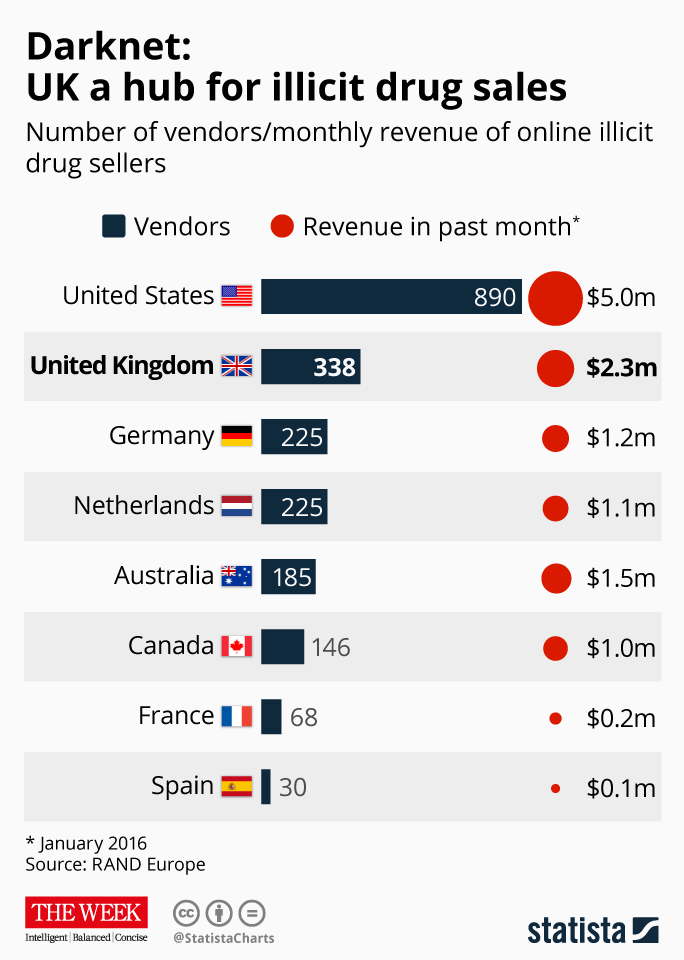UK responsible for most online drug deals in Europe
British dealers made £1.7m in monthly web sales, coming only second to the US in illegal narcotic revenues

A free daily email with the biggest news stories of the day – and the best features from TheWeek.com
You are now subscribed
Your newsletter sign-up was successful
Drug dealers based in the UK earned more money than their European rivals on the so-called dark web, according to a report commissioned by the Dutch government.
British dealers made roughly £1.8m in monthly web sales - a 16 per cent share of the global online drug market - followed by Australia, Germany and the Netherlands. The US has the largest market share with 35.9 per cent.
"They found that by far the most vendors operated from the US, which hosted 890 drug dealers, with the UK hosting 338," The Guardian reports. "However, British dealers proved to be far busier, averaging almost double the number of transactions each over the month."
The Week
Escape your echo chamber. Get the facts behind the news, plus analysis from multiple perspectives.

Sign up for The Week's Free Newsletters
From our morning news briefing to a weekly Good News Newsletter, get the best of The Week delivered directly to your inbox.
From our morning news briefing to a weekly Good News Newsletter, get the best of The Week delivered directly to your inbox.
The online drug bazaar was pioneered by Silk Road, which was shut down in 2013. Users were able to use untraceable encryption programmes and Bitcoin to purchase a wide range of narcotics and other goods.
A series of copycat sites have sprung up and researchers claim there are currently 50 online shops around the world, where anonymous sellers and buyers trade illegal drugs, new psychoactive substances, prescription drugs and other goods and services.
The most common drug sold on the dark web is cannabis, which accounts for 33 per cent of sales. It is followed by prescription medication such as Xanax, stimulants, ecstasy- type drugs and psychedelics.
The study noted that the transactions were dominated by drugs commonly only bought for recreational use at parties, with the likes of heroin and crack cocaine not popular online.
A free daily email with the biggest news stories of the day – and the best features from TheWeek.com
"A possible explanation for these differences between online and offline markets may be that crypto-market purchases typically require an element of planning, which may not suit the daily use of dependent users of, for instance, heroin," the report said.

Infographic by www.statista.com for TheWeek.co.uk.